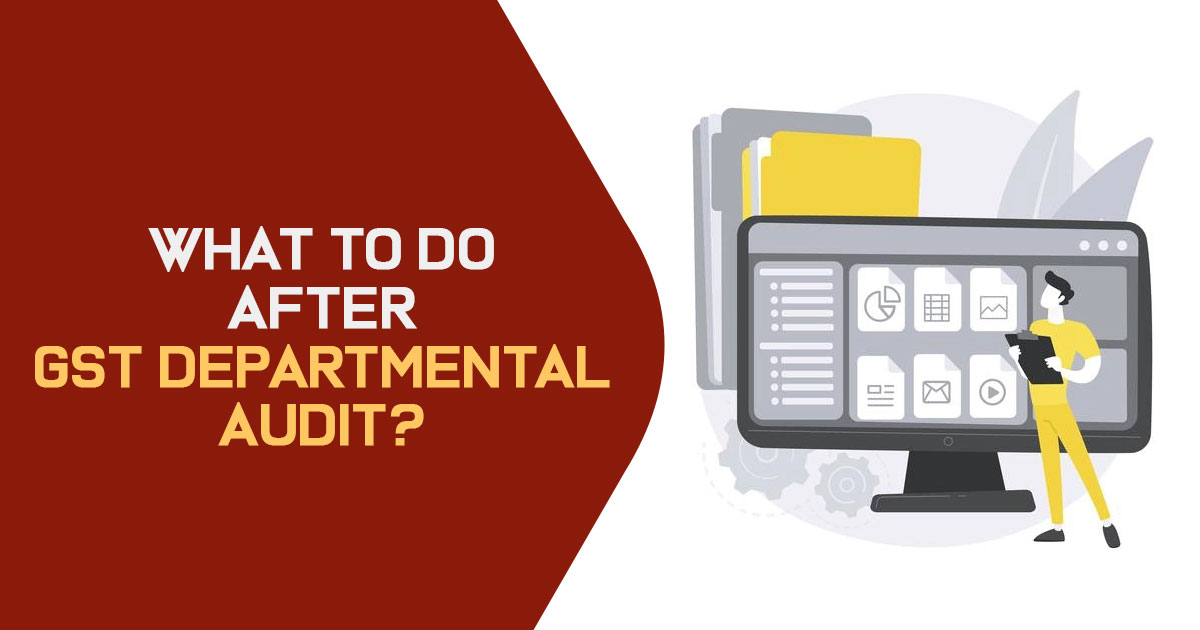
GST department audit parameters towards the selection eligibility, required documents which could be obliged for the and proactive steps to be undergone.
GST is the biggest tax improvement in our country and to a larger extent it has been stable now but the assessee is still struggling with some problems and compliances needed to be undertaken.
It is seen in recent times that the department that issues the notices conducts the audit. The scrutiny of the Books of accounts, and document verification as per the books of accounts is managed, with reconciliations done as per the filed returns, tax rates, and claimed refunds. The ITC claimed and used and other related problems are there to execute in the GST audit.
Selection Towards the Assessee to Undergo GST Audit
GST audit is to be implemented upon the specific risk parameters and computerized techniques. There are various risk parameters that can be recognized in the selection of the audit as mentioned below:
- The volume of the turnover of the assessee.
- Revision in the turnover of the assessee with respect to the previous year.
- More eminent incidence of supplies excluding providing the e-way.
- High variance in ITC amid 3B and 2A.
- The assessee who does not furnish the periodical returns however provides the E-way bill.
- Assessment of the Financial ratio.
- The volume of the refunds of the assessee.
- Assessee who urges exemptions or gets bankrupt.
- Particular details were obtained from other Government officials such as Income Tax, ROC, RBI, etc.
The Audit Team Might Urge for the Documents and Records While Operation
- Audited financial statements which consist of the directors’ and audit reports.
- Report of Tax Audit.
- Return of Income-tax.
- 26AS Form
- Trial Balance
- Opening balance, supply, receipt and goods stolen, lost destroyed, and the closing balance in Stock Register.
- delivery challans, Tax Invoices, purchase bills, receipts, credit and debit notes, and payment vouchers, bills of supply.
- Production records engage with the break up of raw materials as well as finished goods.
- Information of Advances received and paid.
- Records concerning ITC claimed and used.
- Suppliers and Customers’ Name with full address.
- Reconciliation statement amid returns furnished and books of accounts.
- Miscellaneous details are needed through the law and deemed fit.
Important Things to Know Before Furnishing Documents to the Council
Stock Statement Quantitative
The quantitative stock statement is the first objective that the council might urge for. The majority of the assessee shall not maintain the quantity-wise and HSN-wise stock summary. Indeed, to manage their profits for the income tax intention they use the stock as a tool to lessen the Gross profit. Beneath GST it is essential to maintain the quantity-wise and HSN-wise stock summary. Hence it is recommended to prepare the stock statement priorly and if any administration is seen then this shall be declared to prevent the penalty that the council might levy in the future.
Reconciliation Statement Preparation
- Settlement amid the taxable value as well as the tax liabilities shown in GSTR 3B
- Settlement within ITC claimed in GSTR 3B and that shows in GSTR 2A and GSTR 2B
- Settlement of Tax liability stated and Income tax credit demanded in GSTR 3B with books of accounts
- Settlement of Taxable value under GSTR 9C/9 in Trial Balance.
Scrutiny of Trial Balance See Through
However, the council can depend on the balance sheet and the profit or loss statement. They may still urge for the Trial balance under scrutiny which can support in finding out specific changes that may build into the financial statements. For instance: The majority of the time the freight is managed under the profit and loss statements that drive the incorrect GST computation liable to pay beneath RCM. In similar times the discounts obtained and the discounts permitted shall get the corresponding handling beneath GST but during the times they get equalized in profit and loss. Hence it is advised that the opening balances, the transactions in the year, and the closing balances should be scrutinized properly under the Trial balance.
Reverse Charge Mechanism (RCM) Tax Filed
The assessee should go through several heads of expenditures to estimate the tax payable beneath RCM prior to furnishing the credentials with the council for audit. It must be seen if that amount has been availed as ITC. Also, the generation of rate-wise settlement of RCM is payable and filed through the assessee. If any difference is seen then this must be discharged prior to the council starting its proceedings.
Rate of Tax and HSN
It is recommended to see if the correct HSN codes are to be used through the assessee or not. If not, then see if there is any difference in the tax rates and if found without any variations in the same then it is advisable to freely mention the use of the wrong HSN code. However, if there is any difference in the tax rates then the variation must be freely furnished to prevent the penalties or if more tax is filed that will be claimed under refund.
Verify If all Guidelines are Performed
It is to be circulated that there is a need to check out the failure inside the guidelines of the assessee. See if all the returns have been furnished, or if the taxes have been filed within the mentioned date or not. If there is any late filing of the taxes then the interest has to be paid. In case there is any short payment revealed then this will need to furnish freely to prevent the penal outcome.
The above discussed are some of the objectives which must be recognized by the assessee or the consultant prior to furnishing the credentials to the council for the audit.








